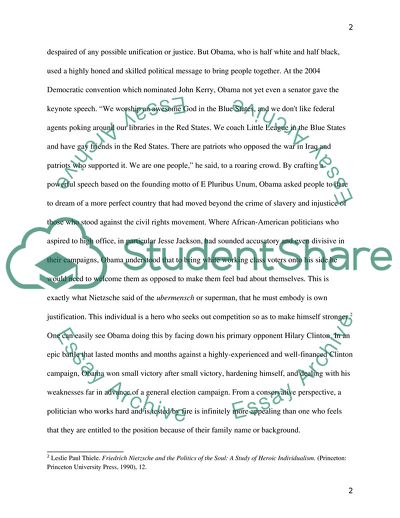Cite this document
(Nietzsche and Obama Essay Example | Topics and Well Written Essays - 1250 words, n.d.)
Nietzsche and Obama Essay Example | Topics and Well Written Essays - 1250 words. https://studentshare.org/politics/1718449-how-might-friedrich-nietzsche-interpret-the-election-of-barack-obama
Nietzsche and Obama Essay Example | Topics and Well Written Essays - 1250 words. https://studentshare.org/politics/1718449-how-might-friedrich-nietzsche-interpret-the-election-of-barack-obama
(Nietzsche and Obama Essay Example | Topics and Well Written Essays - 1250 Words)
Nietzsche and Obama Essay Example | Topics and Well Written Essays - 1250 Words. https://studentshare.org/politics/1718449-how-might-friedrich-nietzsche-interpret-the-election-of-barack-obama.
Nietzsche and Obama Essay Example | Topics and Well Written Essays - 1250 Words. https://studentshare.org/politics/1718449-how-might-friedrich-nietzsche-interpret-the-election-of-barack-obama.
“Nietzsche and Obama Essay Example | Topics and Well Written Essays - 1250 Words”. https://studentshare.org/politics/1718449-how-might-friedrich-nietzsche-interpret-the-election-of-barack-obama.


